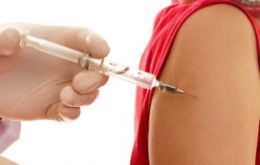MercoPress. South Atlantic News Agency
Tag: World Health Organisation (WHO)
-
Monday, March 24th 2025 - 20:12 UTC
Uruguay reports first autochthonous case of dengue

Uruguayan health authorities Monday confirmed the first autochthonous case of dengue this year. It was a patient in Montevideo, whose appearance triggered a full-scale deployment of epidemiology teams to track down the Aedes aegypti mosquito, the disease's vector. Montevideo City Hall teams also tested neighbors of the affected person in a move to curtail spreading.
-
Tuesday, November 13th 2018 - 08:13 UTC
Wide differences in antibiotic use between countries, says new data from WHO

New data published by WHO reveals wide differences in consumption of antibiotics in different countries. For the first time, WHO has collated data on antibiotic consumption for human health care from 65 countries and areas.
-
Monday, June 15th 2015 - 05:19 UTC
Health spending pushing low and middle income countries further into poverty

A World Health Organization and World Bank Group report shows that 400 million people do not have access to essential health services and 6% of people in low- and middle-income countries are tipped into or pushed further into extreme poverty because of health spending.
-
Tuesday, February 24th 2015 - 17:29 UTC
WHO calls for worldwide use of 'smart' syringes

Use of the same syringe or needle to give injections to more than one person is driving the spread of a number of deadly infectious diseases worldwide. Millions of people could be protected from infections acquired through unsafe injections if all health-care programs switched to syringes that cannot be used more than once.
-
Friday, September 12th 2014 - 01:18 UTC
Congo reports 31 new Ebola cases in the week to 9 September

Thirty one cases of Ebola virus disease (EVD) more have been reported between 2 and 9 September 2014, in the Democratic Republic of the Congo (DRC), increasing the cumulative number of cases to 62 (14 confirmed, 26 probable, and 22 probable), according to the latest report from WHO, World Health Organization.
-
Saturday, August 2nd 2014 - 07:56 UTC
Ebola outbreak 'out of control' but 'can be stopped' said world's top health official

West Africa's Ebola outbreak is out of control but it can be stopped, World Health Organization chief Margaret Chan said on Friday at a meeting in Conakry, capital of Guinea.
-
Monday, April 21st 2014 - 06:28 UTC
Brazil attempts to combat dengue with GM mosquitoes

The world’s largest ever swarm of genetically modified mosquitoes has been released in a Brazilian town to combat dengue -- a leading cause of illness and fatality in several Mercosur countries, except for Uruguay.
